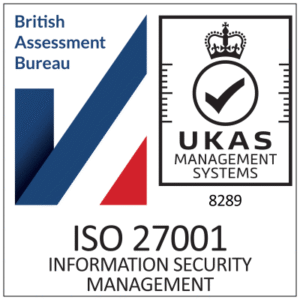
European Operators Eye Merger Opportunities
Mergers and acquisitions are firmly back on the agenda for European telecom operators.
For years, regional regulators have pushed back against consolidation, fearful of the potential impact on pricing and competition.
Now, however, it feels the tide is turning as regional CEOs strike a more optimistic tone amid swirling rumours of potential deals in some of Europe’s most important markets.
CCS Insight’s latest Insight Series report assesses the reasons for this renewed hope and where the next major deals are most likely to be struck.
Several recent developments offer the industry confidence. These include approval of the VodafoneThree merger in the UK; the high-profile reports by Mario Draghi and Enrico Letta in 2024; a review by the European Commission into its merger guidelines; and the appointment of a new competition chief in Brussels.
So, which markets should we be keeping an eye out for? France is my bet to announce the region’s next big deal. This is because of the uncertainty surrounding SFR and its heavily indebted parent, Altice.
Altice is controlled by French–Israeli billionaire Patrick Drahi, who has been busy dismantling the telecom and media empire he built through a debt-fuelled acquisition spree a decade ago. Rising interest rates have forced the company to sell off assets to appease creditors.
Orange, Iliad and Bouygues have been exploring a carve-up of SFR that would see the rival operators dividing its assets between them. Such a deal would reduce the number of competing players in the French market to three and, therefore, invoke strong scrutiny from regulators.
But the idea of splitting and sharing an operator isn’t unprecedented. In 2020, for example, Telefonica, Claro and TIM Brasil acquired the (mostly mobile) assets of Brazilian operator Oi, albeit after a lengthy regulatory probe.
Spain has been a hotbed for mergers and acquisitions over the past few years, and rumours are swirling that further deals could be on the table.
After the merger of Orange and MasMovil to form MasOrange was finally approved by the European Commission in February 2024, UK-based Zegona completed the €5 billion acquisition of Vodafone Spain.
The latest rumours suggest that Telefonica is eyeing a deal to acquire Vodafone’s Spanish operations and that it has already obtained approval from its major shareholders. Telefonica is amid a major strategic review under new CEO Marc Murtra, who has made no secret of his enthusiasm for consolidation.
However, any takeover would face a mountainous task to achieve regulatory approval, as it would reduce the number of nationwide mobile networks from three to two, an unprecedented scenario for a major European market.
Future deals could also be on the cards in Italy. Already in 2025, Swisscom has completed the €8 billion acquisition of Vodafone Italia, which it’s integrating with its local fixed-line operation, Fastweb.
The CEO of TIM, Pietro Labriola, has said that his company is willing to explore a potential tie-up with Iliad. But interestingly, he has also commented that it “wouldn’t be a nightmare” if Iliad instead combined with Wind Tre. This suggests he believes that reducing the number of competing players can bring benefits to all parties, no matter who is involved in making the deal.
As we explore in the report, other markets such as Denmark, Germany, Ireland and Sweden also offer scenarios for operators to join up.
I expect that one or two major deals will be announced over the next few years, which will form an important litmus test of regulators’ willingness to allow companies to merge.
As I’ve argued many times before, a more-lenient approach to telecom consolidation in Europe is long overdue as the region slips further behind leading technology markets such as the US and China. Bulking up should mean more-efficient investment, bolstering connectivity for the benefit of all sectors of society.
But I’d caution getting too hopeful. Even if a fresh wave of deals is approved, it’ll still take years before the region moves away from its current highly fragmented, overly competitive and subscale market structure. A change in tack from regulators would be a welcome development, but it still feels like a long journey to help get the region back on track.
 LinkedIn
LinkedIn
 Email
Email
 Facebook
Facebook
 X
X
